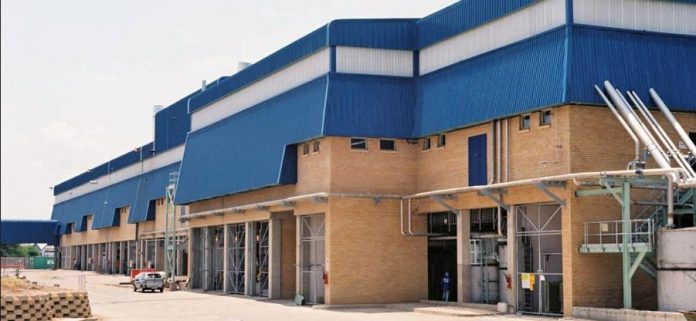HARARE – (Finx) – Packaging manufacturer, Nampak Zimbabwe says settlement of electricity bills in foreign currency is milking the industry as it does not match the exporting levels.
Last month, Zimbabwe officially gazetted a directive which requires exporting companies to pay their electricity bills in foreign currency.
But, power utility, Zimbabwe Electricity Supply Authority (ZESA) can only use that forex to pay for electricity imports, spare parts or critical equipment, foreign loan repayments and foreign insurance premiums.
Even exporters exporting less than 80 percent of their output will still have to pay 35 percent of their electricity bills in foreign currency.
Crippling power outages continues to be a threat productivity and viability of the industries in the country.
Zimbabwean industries are already reeling under low capacity utilization, liquidity crunch, inflationary pressures, fuel shortages and acute shortages of foreign currency.
In a trading update on Friday, managing director John Van Gend said the power situation has necessitated use of generators beyond normal capacity which has led to increased production costs.
“A further challenge is the recent requirement for exporters, irrespective of their export levels, to pay for a proportion of electricity consumption in foreign exchange,” he said, adding that alternative energy sources are under active consideration.
“The group remains engaged with the appropriate authorities and institutions to try and manage these challenges to our best advantage.”
Meanwhile, in the year ended September 30, 2019, the group’s volumes were generally lower across all local sectors, with the exception of the tobacco sector at Hunyani.
Export volumes increased due to higher demand for tobacco packaging in Malawi and unexpected orders from Mozambique.
However, local sales were down.
The introduction of SI 142 compounded the difficulties of sourcing foreign currency, he said, which is vital to import various raw materials, particularly paper for conversion to tobacco boxes.
“Demand remains reasonable across the product portfolios, but supply continues to be hampered by the lack of raw materials,” Van Gend said.
The firm requires about $3.5m in forex on a monthly basis to cover for the raw materials.
In line with the Exchange Control Directive RU 102 dated 25 June 2019 and the Exchange Control Circular No 8 of 2019, the blocked funds previously held in the Non-Transitory Foreign Currency Account were transferred to the Reserve Bank of Zimbabwe after year-end.
“Additional blocked funds covering foreign creditors outside the agreement were also remitted pre and post-year end to the Reserve Bank of Zimbabwe.”
On the individual trading companies, Hunyani Paper and Packaging volumes declined by 8 percent compared to the previous year.
Also, local commercial volumes declined by 54 percent.
However, these were mitigated by improved local tobacco packaging volume growth of 34 percent due to a higher crop size.
Exports grew by 65 percent on prior year. The commercial segment experienced a loss of volumes due to pricing challenges and a decline in the cartons segment due to raw material sourcing limitations.
Carnaud Metal Box (CMB) which deals with PET bottles, HDPE bottles, closures, metal cans, closures, and ROPP caps (type of bottle cap), saw its volumes declining by 40 percent compared to the prior year as major customers recorded a reduction in their market segment demand.
Mega Pak, which does the PET and HDPE bottles, crates and plastic closures, reported a 27 percent decline in volume owing to falling consumer demand in the beverage and cordials sectors and raw material supply constraints.
The publication of the Audited Financial Statements for the year ended 30 September 2019 has been delayed due to the requirement for compliance with International Accounting Standard (IAS 29) regarding inflation adjusted reporting in hyperinflationary economies as pronounced by the Public Accountants and Auditors Board.
In the outlook, he said the trading environment facing the group and the manufacturing sector as a whole remains challenging.
“It is unlikely that any meaningful relief will be forthcoming until the critical constraints of foreign exchange and power supply are eased and that there is a return to a more market managed economy.”
Capital projects of $3.5m, the majority of which were carried forward from the prior financial year, were spent largely on replacement machinery. But, capital expenditure programs remain curtailed.
















